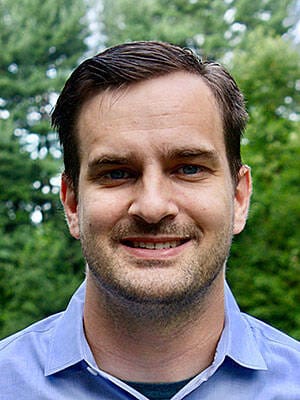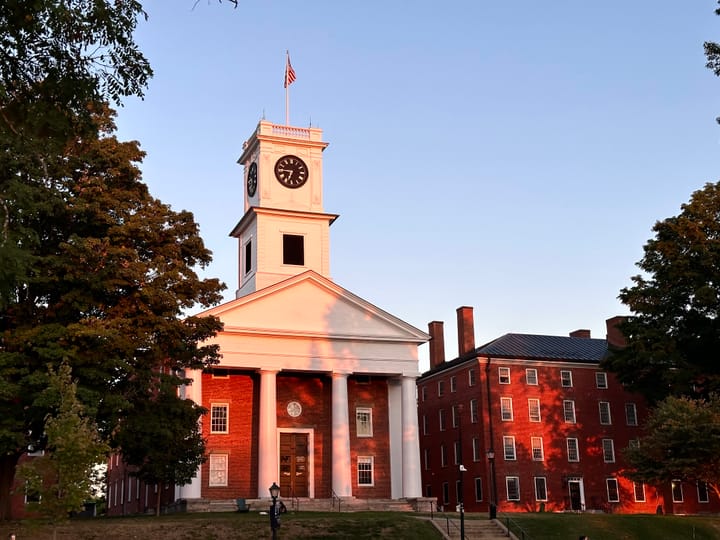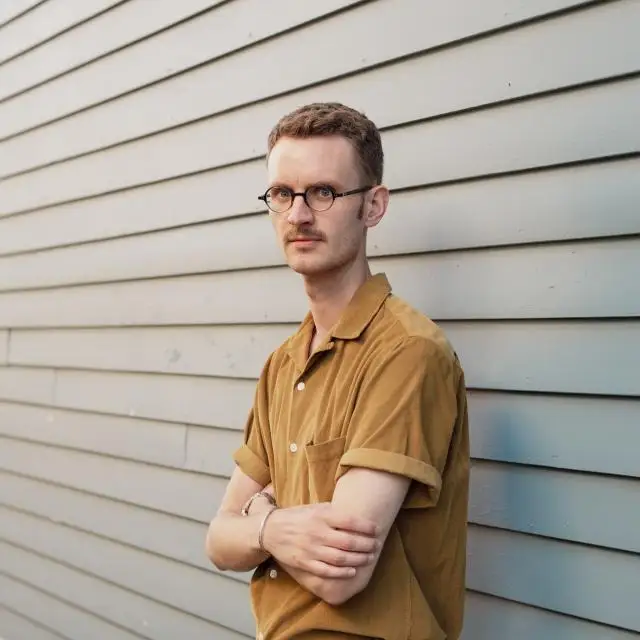Fresh Faculty: Jake Blackwood

Jake Blackwood is an assistant professor of economics. He received his B.S. in economics and international affairs from the Georgia Institute of Technology, and his M.A. and Ph.D. in economics from the University of Maryland.
Q: What do you most enjoy about teaching at Amherst so far? A: I think that there is, at least in my previous experience… a sense of which, there are personal interactions that you get with the students. There is an expectation that the professors are slightly more available than at larger universities. I get more contact with my students on a regular basis, which is a nice thing in a lot of ways. In particular, it feels like a community that I am becoming a part of. The small class sizes and regular contact with students gives me a sense of a community feel. That’s what I like about teaching. I’m teaching both an introductory course, with first-year students and people who are getting into economics, and I am also taking a 400-[level] course, with upper level students. Those are two very different experiences. There are some commonalities; in the discussion sections there is a lot of engagement relative to what I have experienced before.
Q: Where did you grow up? A: I grew up in south Florida, in Palm Beach County. The weather here is a shock. I went to school in Georgia, worked for a couple of years in Virginia and then went to school in Maryland for my doctorate. I have slowly worked my way north, and I have slowly acclimated myself to the weather. But, I’m expecting this winter to be intense.
Q: What sparked your interest in economics? A: I remember taking the very same level of courses which I am teaching now, and being interested in the notion of making claims about economic outcomes and showing, albeit in very simple frameworks, quantitative relationships that are founded in something tangible like mathematics. That appealed to me, being able to do some curve shifting and say ‘oh, under the assumptions of the model, we predict this sort of thing would happen.’ It has a real rigor to it that I think is different from other fields. There’s a [John Maynard]Keynes quote, and I am going to butcher it, but it is something like, “An economist needs to be a jack of all trades: a mathematician, a historian, a philosopher.” There is some philosophy to what we do, though I don’t think we fully recognize it. An economist takes knowledge from a broad variety of fields. It blends a couple different fields, and it is an interesting way of viewing social science problems. It puts some more or less rigorous context into it, which I think is a good thing, but not always: there are a lot of benefits in other fields at looking at the problems in different ways. That sort of thing interested me: writing and describing the economy with an equation.
Q: What made you want to become a professor? A: There is a sense in which getting my Ph.D. was about continuing my knowledge in that field. I felt like I just wanted to know more than I did, which is why I pursued my Ph.D. I wanted to truly dive into something and gain experience in it. Eventually, the idea of getting a Ph.D. is producing your own research in that field. Having gone through those steps, I felt like I would enjoy continuing to pursue the idea of pushing research further in the field, and continuing to conduct my own research, but also going back to the beginning, and introducing people into why I am so interested in researching this topic.
Q: What classes are you teaching? A: My 400-level course is on entrepreneurship. We talk a lot in that course about the relative importance of young firms in the economy. It’s the entrepreneur who goes out and starts their own business, which is a fundamental part of our economy, and builds the folklore of our economy, and also in reality. We see that young business are really important to our economy in things like job creation. There’s an often cited statistic that small businesses create the most jobs, when in reality it is young businesses, who just so happen to be small. And they’re really the ones who are driving that statistic. Entrepreneurs are really important in some sense for both that, and also innovation and productivity growth, [to which] they contribute disproportionately to those things. Understanding why that is is what the 400 [level] course is about.
Q: What do you enjoy doing in your free time? A: I have two kids, so that takes up a lot of my free time. We are just now getting to a point with both of them where it’s their first winter. My youngest is 9 months, so they haven’t dealt with snow that much. We actually had a lot of fun this morning, going out in the snow with my oldest, who will be three in January. So that takes up a lot of my time, but my wife and I managed to go hiking last weekend, and I hope that’s something I’ll be able to take advantage of more while at Amherst— the outdoors stuff.
Q: What brought you specifically to Amherst? A: Well, this is a really great opportunity, as someone who is interested in continuing doing research in economics, but also interested in sharing with bright students what my passion is for that subject, more broadly and then more narrowly depending on the course. It’s a relatively unique place, where I am held at a high standard in terms of research and that’s something I want to have the opportunity to pursue, but also, there is a lot of emphasis on teaching and teaching well, which is something I want to do. I will become a much better teacher here than I would anyplace else. I am really happy about being in this location, with having a family and everything. It’s a fantastic institution and it’s great to be a part of it.





Comments ()